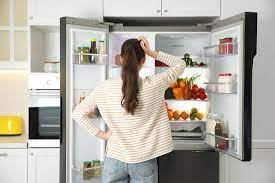Welcome to another detailed guide from TheKitchenApplianceDad.com, where we dive deep into the common issues you might face with your kitchen appliances. Today, we’re focusing on a common problem: a noisy Whirlpool freezer. It’s not uncommon for your freezer to make some noise during normal operation, but excessive noise can indicate a problem. Let’s explore why your Whirlpool freezer might be making noise and how you can fix it.
1. Buzzing or Humming
This type of noise typically occurs when the ice maker is filling with water. If you notice the noise intensifies when the ice maker is operating, this is likely the source.
2. Clicking
Clicking sounds can be caused by the start relay or compressor. If the compressor struggles to start, the start relay may click repeatedly before the compressor kicks in.
3. Whirring or Fan Noise
The evaporator fan motor or condenser fan motor might produce a whirring sound if there’s an issue. This could be due to dust accumulation or a failing motor.
4. Popping or Cracking
These sounds can be a bit alarming but are often normal. They usually happen because of the expansion and contraction of the interior walls due to temperature changes.

Step 1: Identify the Type of Noise
To effectively address the noise, you first need to pinpoint what type of noise your freezer is making. This identification will guide your troubleshooting process.
Step 2: Inspect the Ice Maker
If the noise is a buzzing or humming sound:
Step 3: Check the Evaporator and Condenser Fans
For whirring sounds:
Step 4: Evaluate the Compressor and Start Relay
For clicking sounds:
Step 5: Address Popping or Cracking Noises
Since these sounds are often due to temperature changes:
While many issues can be resolved with DIY methods, some problems require professional expertise, especially when dealing with the compressor or sealed system repairs. If the noise persists after you’ve gone through the troubleshooting steps, or if you’re uncomfortable performing any of these tasks, it’s wise to contact a professional technician.
By understanding the common causes of freezer noise and how to address them, you can ensure your Whirlpool appliance runs quietly and efficiently. Remember, regular maintenance is key to preventing future issues. Visit us at TheKitchenApplianceDad.com for more tips and guides on keeping your kitchen appliances in top shape!

